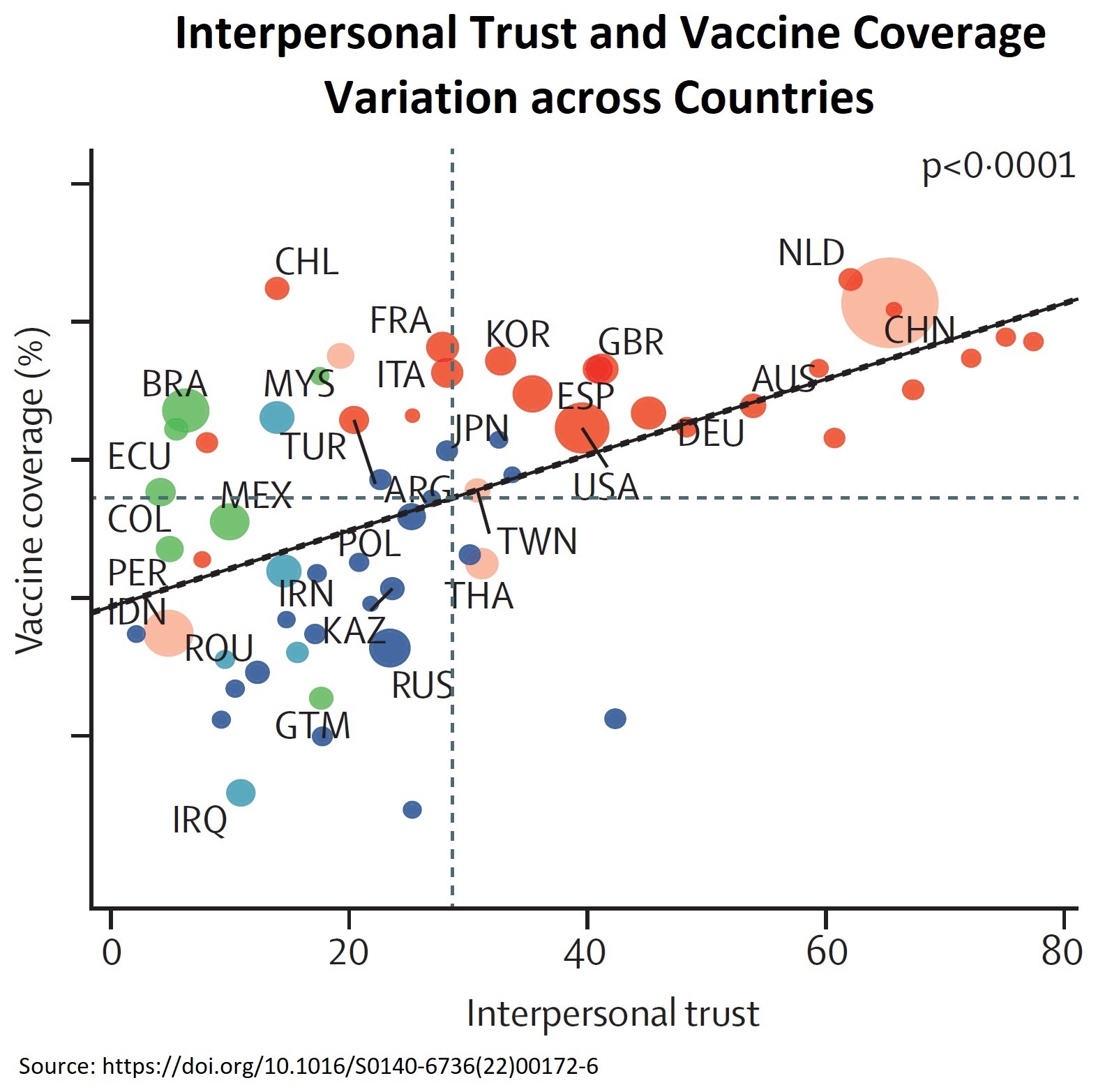Obesity, COVID, Mortality, and Trust
 By all traditional measures of public health, Vietnam was in a bad spot when the COVID pandemic began in 2020. It is a small country with weak health and political systems. But early in the pandemic, it succeeded in keeping infections and deaths low. By contrast, the U.S. has done rather poorly. Despite a high score on the Global Health Security Index at the start of the pandemic, the U.S. has been no better than mediocre in preventing infections and deaths. A new study in Lancet brings two factors for COVID mortality into focus – trust and obesity prevalence.
By all traditional measures of public health, Vietnam was in a bad spot when the COVID pandemic began in 2020. It is a small country with weak health and political systems. But early in the pandemic, it succeeded in keeping infections and deaths low. By contrast, the U.S. has done rather poorly. Despite a high score on the Global Health Security Index at the start of the pandemic, the U.S. has been no better than mediocre in preventing infections and deaths. A new study in Lancet brings two factors for COVID mortality into focus – trust and obesity prevalence.
In Vietnam, high trust – both interpersonal and in government – appeared to help. For the U.S., both high obesity prevalence and lower levels of trust have made the country vulnerable.
Indispensable Trust
The big headline coming out of this study of COVID infections and mortality is trust. Of course, we should start with the caution that this is a study of correlations. So in terms of sorting out causal relationships, this might be useful research, but it is surely not the final word. It is no small task to determine cause and effect betwen social factors and health outcomes.
With that said, this research led by Erin Hulland and Thomas Bollyky is quite impressive. It makes the case that trust – interpersonal, in government, and in science – has played a big role in preventing mortality in some countries during this pandemic. The researchers found:
“Measures of trust in the government and interpersonal trust, as well as less government corruption, had larger, statistically significant associations with lower standardised infection rates.”
 What’s more, these measures of trust lined up with better vaccination rates where the vaccine was widely available. The U.S. suffers from lower levels of trust and vaccine utilization than other wealthy countries.
What’s more, these measures of trust lined up with better vaccination rates where the vaccine was widely available. The U.S. suffers from lower levels of trust and vaccine utilization than other wealthy countries.
Obesity and Death Rates
Replicating findings by others, this new research also tells us that obesity is an important factor in the risk of death when a person has COVID. In fact, it was one of just three factors – age structure, GDP per capita, and BMI – that largely explained why infections led to death more often in some countries than others.
In IJO last month, a Mendelian randomization study told us that the relationship between excess adiposity and bad outcomes with COVID is likely one of cause and effect.
Unfinished Work
This research reminds us that we have a lot work to do. Public health, government, and every one of us should be working to build trust in many dimensions. We need better strategies for overcoming obesity because the go-to strategies of the last three decades have failed miserably and left us vulnerable.
Every one of us has a role to play in making this better.
Click here for the study in Lancet, here and here for further perspective.
Night Rider, painting by David Burliuk / WikiArt
Subscribe by email to follow the accumulating evidence and observations that shape our view of health, obesity, and policy.
February 4, 2022
